
Worm infestation is a common health problem for cats, especially if they go outdoors. With some types of worms, there are hardly any symptoms. But other types can make your cat seriously ill and in extreme cases even be fatal.
Before treating worms, you need to know which type your cat has. Once you’ve found that out, you can use a product such as Bayer Tapeworm Dewormer to treat. Treatment is available in tablet or liquid form, and there are many natural alternatives you might want to consider. Read on to learn how to protect your cat from these parasites.
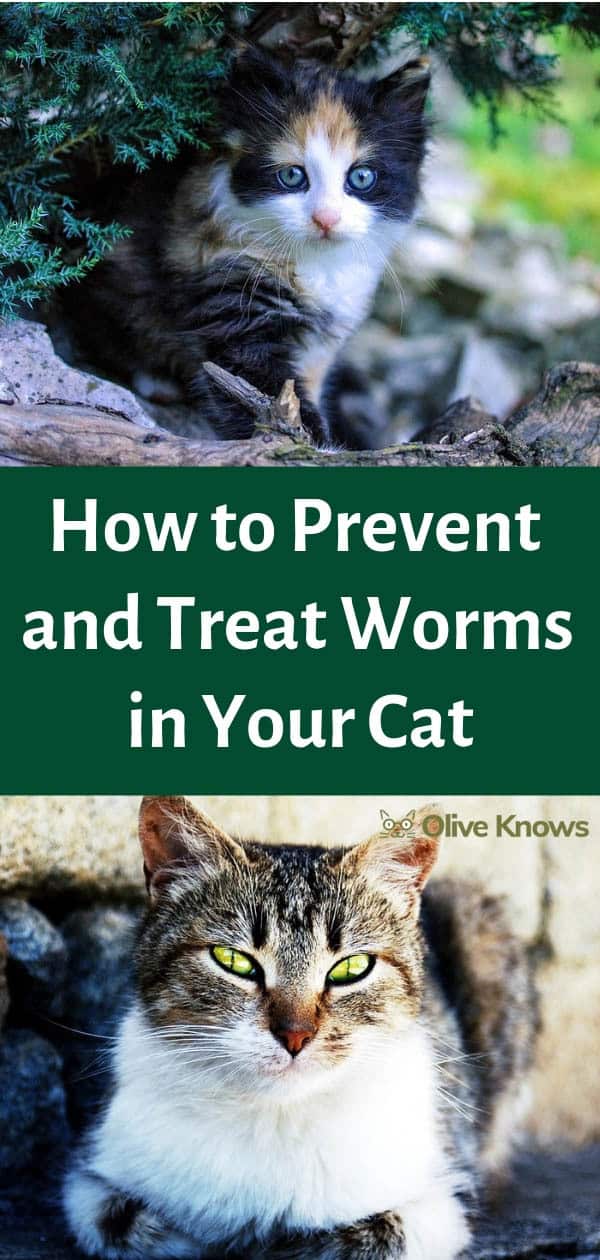
Table of Contents
What Are Worms?
You may have heard about cats ‘having worms’ but in fact, there are several different types of intestinal parasites that phrase can cover. Worms aren’t just a problem for your cat, either. Some types of worms can cause problems for human health. So it’s well worth any loving cat owner knowing what to look for, and how to treat worms in cats.
The most common types of worms are:
Roundworms
Growing up to 4 inches in length, roundworms (Ascaris lumbricoides) are about the thickness of spaghetti. Your cat may pick up the eggs of this worm by socializing with other cats, or by coming into contact with their feces. If a mother cat has roundworm, they can pass the infection to their kittens through their milk.
Signs of Roundworm Infestation
Your cat may show signs of abdominal pain, by arching their back and tucking their feet in. Their belly may be swollen, and your cat may be sleepier than usual. Your cat may lose interest in food. If the infestation is advanced, you may see dead roundworms being passed in the litter tray. If the worms spread outside the intestine it can cause your cat to develop a cough.
Hookworms
There are a few different species of hookworm that can cause problems in cats. Unfortunately, some of them are also able to set up home in humans. Hookworms get their name because they attach themselves to the lining of the gut using sharp teeth or plates, and they feed on blood and tissue.
Like roundworms, the most likely place your cat will pick these up is by spending time with other cats or in areas where other cats spend time. The eggs are passed in a cat’s feces where they hatch into larvae which can be eaten or can make their way into the body through the skin
Signs of Hookworm Infestation
Your cat may lose weight, even though it is eating well. Diarrhea can also be a problem, and you may see blood in the stool. In advanced cases, your cat may develop a cough when the larvae migrate into the lungs. They can also leave the body through the paws, so soreness or irritation in your cat’s pads is another sign to look for.
Tapeworms
Tapeworms are long, segmented worms that can grow up to 9 inches long. They belong to a different family to other types of worms and are usually contracted when your cat eats a flea. Note that your cat doesn’t need to have fleas in order to have a tapeworm, they only need to have eaten one and they can do that from other cats, or from coming into contact with fleas outdoors.
Signs of Tapeworm Infestation
Tapeworms do not cause so many external symptoms. For many owners, the first sign that their pets have tapeworm is seeing a segment (which look about the size of a grain of rice) in the feces or in the fur around their pet’s anus. If the worm is in the larval stage it may cause irritation to your cat’s rear end, and cause it to scoot it along the floor.
What are the Symptoms of Worms
Although we’ve talked about symptoms under each worm type, we thought it would be helpful to put them all together in a list so you know what to look for in your cat. As we’ve said, some cats may show no symptoms at all, but these are some of the most common symptoms of worm infestation to look for in your pet:
- Diarrhea
- Blood in the stool
- Bloating of the abdomen
- Worms, eggs or segments in the cat’s feces
- Weight loss
- Lack of appetite
- Lack of energy
- Coughing
- Breathing problems
It’s worth remembering that by the time symptoms are noticeable, the worms may have been present for quite a while.
Can I Help my Cat Avoid Worms?
Cats pick up worms when they come into contact with other cats, or their feces. If you have more than one cat, and one has symptoms of worms, you should have both checked because they may have passed the infestation on via grooming.
Indoor cats are less likely to contract worms than their free-roaming counterparts. Cats that hunt mice or birds are at an increased risk of infestation. Make sure that you thoroughly clean the litter box and empty out feces as soon as you see it.
Tapeworms are passed via fleas, so ensuring that your pets are protected from catching fleas can be helpful, however, they only need to eat one flea with worm eggs and they could become infected.
It is hard to prevent worm infestation in cats. The best thing to do is to keep an eye on your cat and seek advice if you have any reason to believe they have come into contact with eggs or larvae.
What to do If you Think Your Cat has Worms
If you see signs of worms in your cat, you should speak to your veterinarian and arrange to have them tested. Once you know which type of worms your pet has, you can start treatment. This is especially important with kittens. Because they use up so much energy growing, they can’t afford to lose valuable nutrients to the worms.
It’s also important to take action as soon as possible because worms can pass to humans in rare cases. If you have children and they enjoy petting your cat, they may pick up worm eggs or larvae on their hands and ingest them. If you think this may have happened, consult your pediatrician.
Home Treatments for Worms
Medical Treatments
Kittens under 6 weeks old should be treated by a veterinarian. If your cat is older than that, then you may wish to treat them with an appropriate medicine bought online. Some of those available are:
Bayer Tapeworm Dewormer
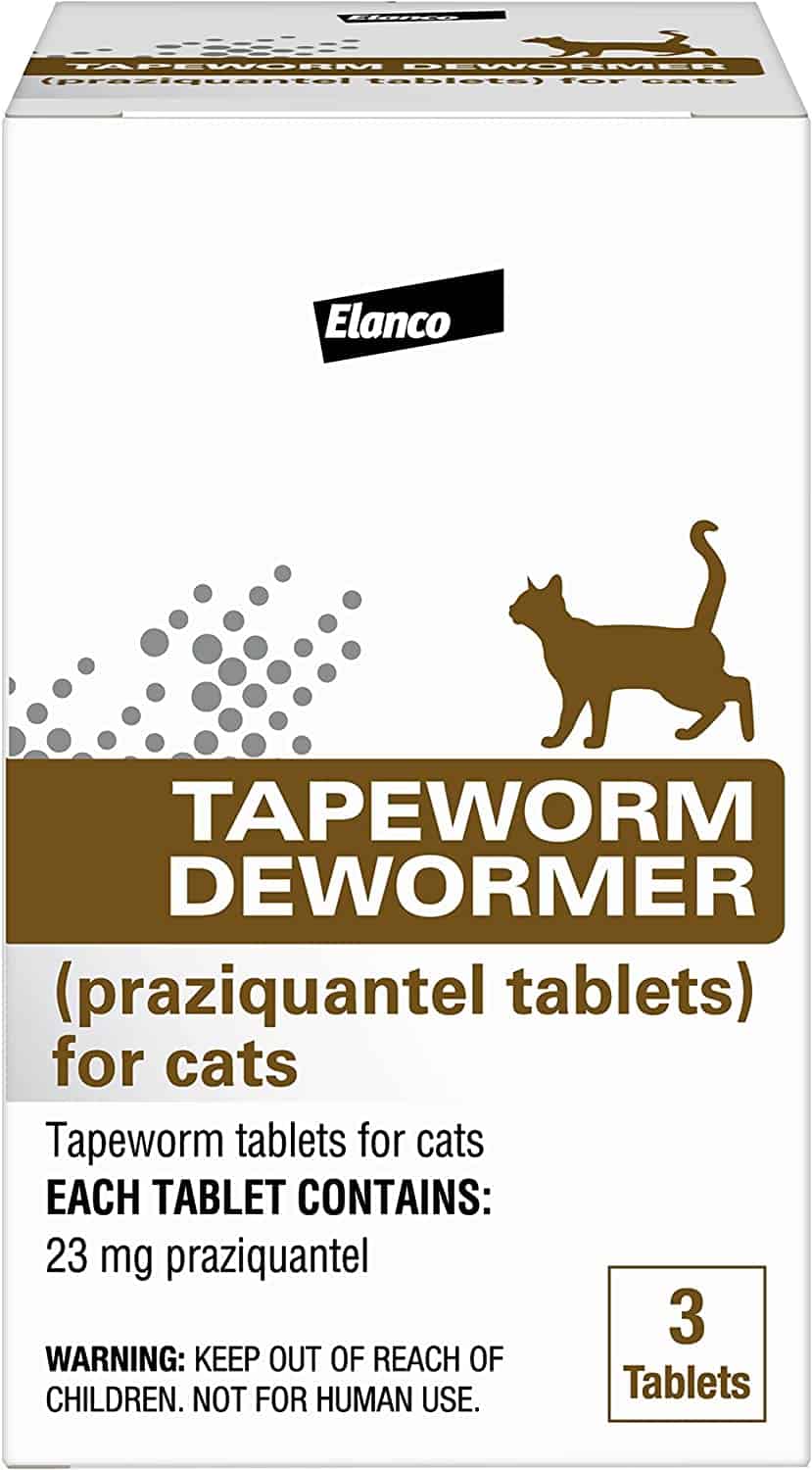
A single treatment will treat your cat and kill any tapeworm in their system. The number of tablets needed will vary depending on the size of the cat but full instructions can be found on the packaging. Because getting cats to take tablets can be hard, this treatment can also be crumbled into wet food.
Designed to end the unpleasant problem once and for all, it safely removes the common tapeworms of dipylidium caninum and taenia pisiformis.
Drontal Broad Spectrum Dewormer (All Types of Worms)
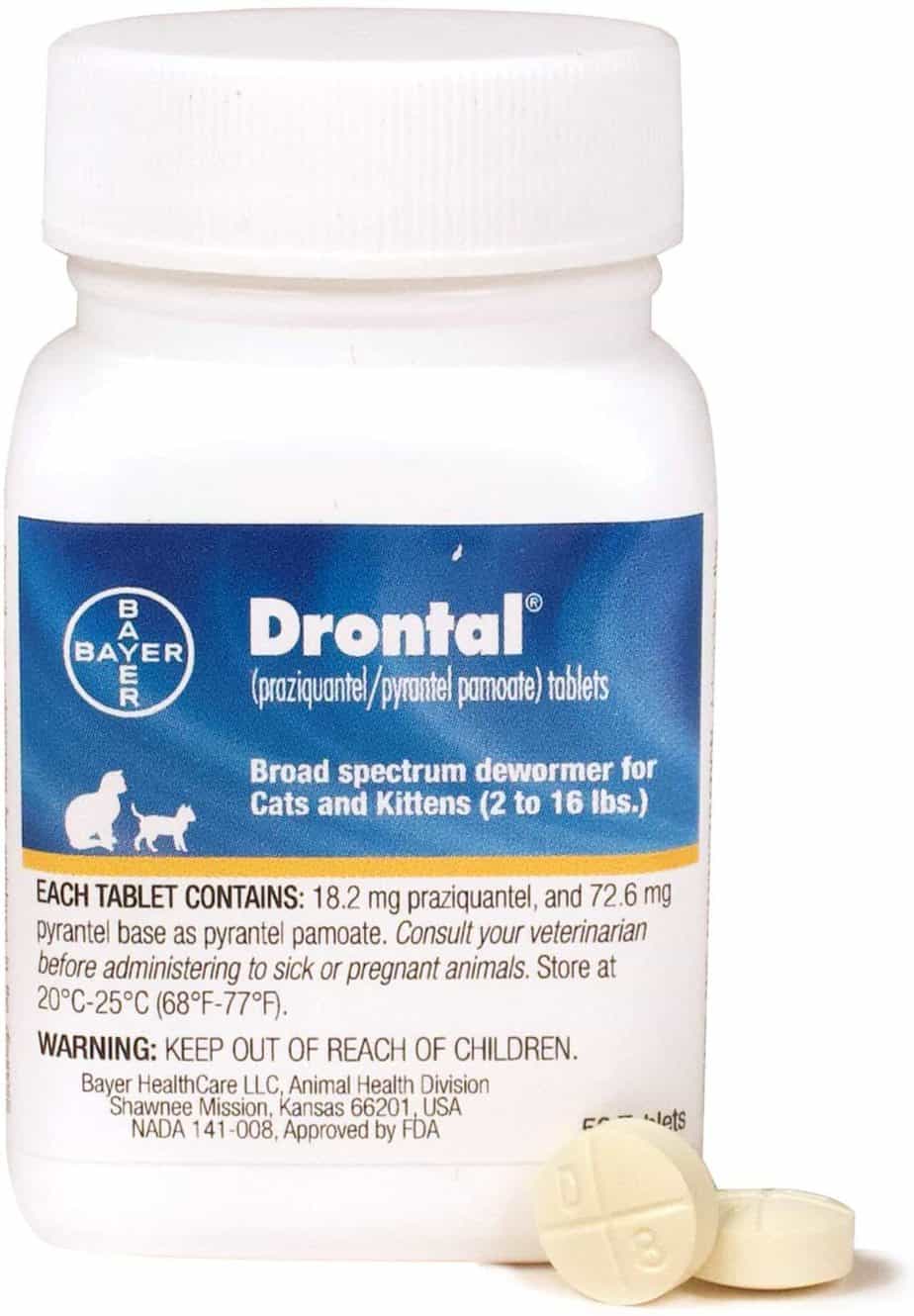
Drontal tablets contain a broad spectrum dewormer that kills all types of worms, including hookworms. Provided in tablet form, you may need to give your cat more than one tablet depending on body weight.
Drontal is recommended by veterinarians to help treat a variety of intestinal worms, including tapeworms, hookworms and large roundworms.
Alternative Treatments
If you prefer to avoid medical treatments, you may be interested to know that there are some alternative treatments available for your pet. Here is a selection of those available:
Naturpet D Wormer
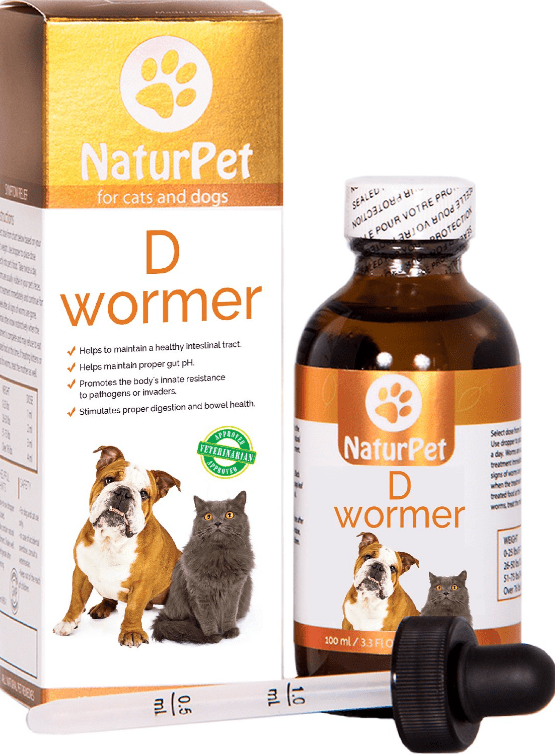
Made from herbal remedies such as Wormwood and Walnut Husk, this is a herbal treatment that claims to work on all kind of worms. Users have commented that it doesn’t smell good, but that it may be slower acting than medical treatments.
This liquid works to kill and expel pinworms, whipworms, tapeworms and roundworms. It also helps soothe the lining of your companion’s digestive tract to help ease gas.
GI Clean Up
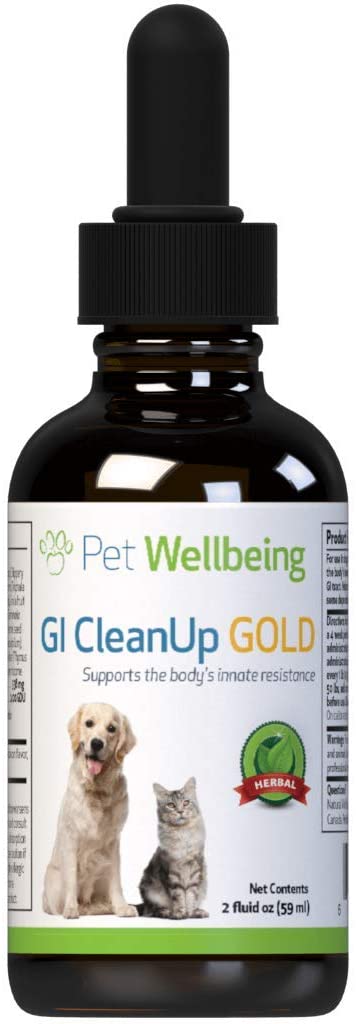
This treatment aims to prevent worms rather than kill them. The instructions say it is to be used in non-acute situations. Like the homeopathic solution, it claims to make the intestine an unwelcoming environment for worms so they don’t set up home in your pet’s gut.
This herbal medicine contains no wormwood or black walnut and is designed for non-acute situations only. It is also suitable for ongoing, cyclical use.
Useful Products
Tablet Syringe
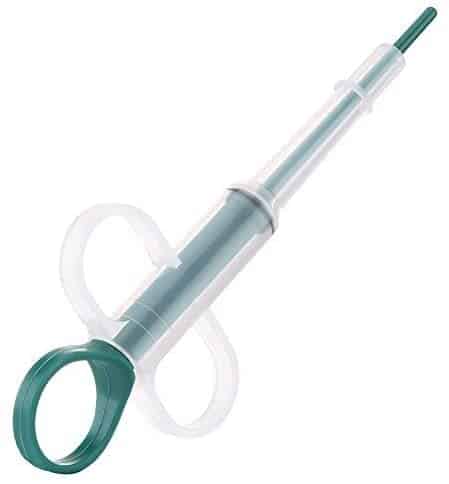
If your cat is the sneaky kind who pretends to swallow a tablet only to spit it out later, this may be the answer to your problems. This soft-tipped syringe (single-use) enables you to give your pets their tablets quickly and easily.
The Buster Pet Piller Syringe has finger rings for easy control and soft rubber tip for comfort and to reduce the chance of injury.
Fecal Worm Test
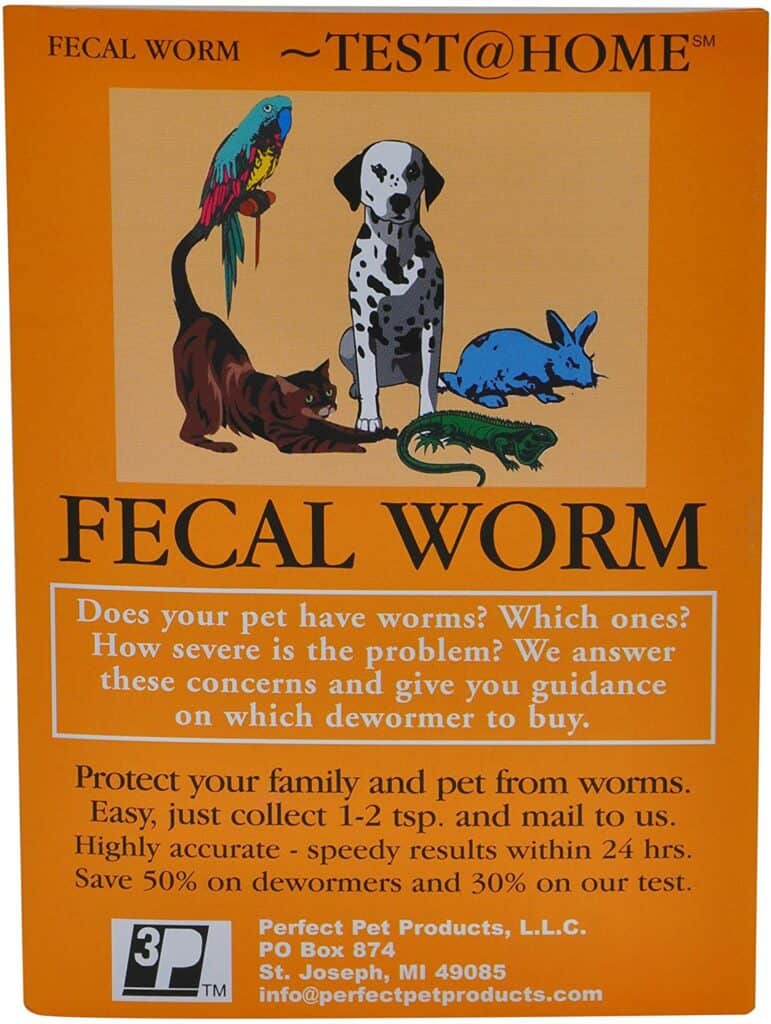
Collect a sample of your cat’s feces and send it off to this company’s lab, and they will test the stool sample and advise you which worms, if any, are causing your problem.
Simply collect one teaspoon of stool sample and mail it from your home or stable to the Licensed Vet Lab via first class mail. The sample is tested within 24 hours of receipt and you will receive a call with the results.
Conclusion
Worms are one of the most common health problems that cats can encounter. Even careful pet owners can end up dealing with infestations which can be damaging to the cat’s health and even pass to humans. As a responsible pet owner it is important that you know the signs of worm infestation and take the correct action as soon as possible.






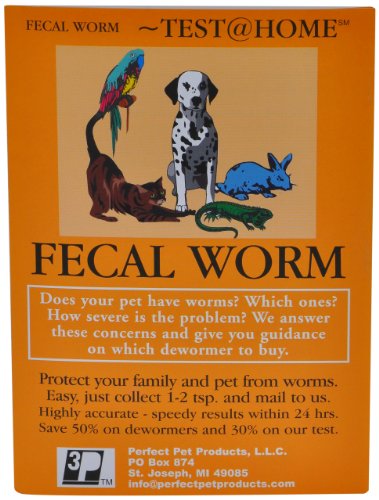

Leave a Reply